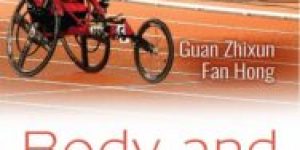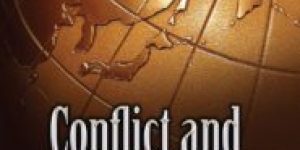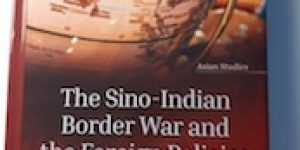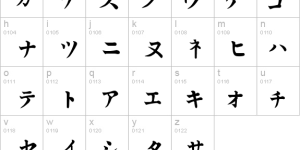My Story ~ 14. Seeking A Better Life, Doing Meaningful Things
No comments yet 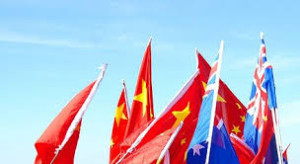 “I came to Australia in order to seek a better life. I have suffered a few bumps along the road but have never given up. Is a better life just for oneself good enough? I gradually realized that your own life is not everything, to assist others less fortunate than yourself to live a better life is a worthwhile reward for hard work and effort!”
“I came to Australia in order to seek a better life. I have suffered a few bumps along the road but have never given up. Is a better life just for oneself good enough? I gradually realized that your own life is not everything, to assist others less fortunate than yourself to live a better life is a worthwhile reward for hard work and effort!”
I met my wife in Harbin when we were pursuing postgraduate degrees, then we got married and went to Shenzhen to work together. We lived there for more than a decade. I was a doctor of traditional Chinese medicine, and my wife was a nurse. We started from nothing when we were married and established a career; however we were motivated by a higher goal, my wife made the decision to go abroad for further study.
There are two main reasons for such an important decision, the first reason— Shenzhen was the first special economic zone when China opened up to the outside world. People could feel the modern atmosphere in Shenzhen at that time. During 1997 and 1998, we travelled to Hong Kong, Singapore, Malaysia and Thailand; we were a part of the early group of people who had experienced the world’s different life styles outside of China. Although many people read about the world from books, films and television, only through personal experience was it possible to see the differences between China and the world. The experience and feelings during our trips outside China not only opened up our eyes, but stimulated us to make the decision to go abroad. The second reason that motivated us was the pressure of work in China. During the reform transition period, Chinese domestic hospitals were facing huge structural adjustments and policy changes. We could feel the instability affecting our career, plus the work pressure was too much to bear, therefore, my wife decided to study abroad to upgrade her knowledge and skills to avoided unpredictable changes and unnecessary pressures. We then contacted an migration agent in Shenzhen to assist us to prepare the application for my wife to study in a Canadian nursing school. It didn’t take long before everything was ready, then the 911 Incident occurred, all the visas to North America were cancelled. So she changed her destination to Australia. Soon after that, my wife came to Perth and studied nursing at Curtin University.
My wife studied English at Curtin University for the first six months, followed by a one-year nursing conversion course. The tuition and living expenses were very high, I had to continue working in Shenzhen to support her financially while also looking after our child. She graduated from the nursing course after a year and half. My wife was very lucky, she found a nursing job three months after graduation just before her student visa was about to expire. My wife had fifteen years work experience in China, which helped her at the interview and she was employed by an Australian hospital. She soon became the most senior clinical nurse in the respiratory department of the hospital. Although it was not so easy at the beginning, because of the language, different work systems and professional habits, she overcame all the difficulties and became a successful nurse.
I quit my job in Shenzhen and came to Australia with our child. Because my wife had come here earlier, her English was fairly fluent, plus she had a regular job, but I entered this life without preparation and did not have the time to adapt and integrate into the life here. So I could only be a “house husband”, take our child to school, pick him up after school, do the shopping and cooking. I was not so happy with such a life and tried to change it.
But the language was a barrier, I could not communicate with people; more importantly, it was very hard for me to overcome the changes of professional status. I made contact with the Traditional Chinese Medicine and Association and Traditional Chinese Acupuncture Association in Australia, after talking with them, I found out that even highly qualified professional people could only operate in a small private clinic. I could see that my future would not be very promising in comparison with the top-tier hospital where I had previously worked. In China, small private clinics could not compare with the large hospitals. The large hospitals were ranked into many levels, and the top-tier hospitals were the highest level hospitals in China. We didn’t accept the laboratory test reports prepared by a lower-level hospital. As you can imagine, my attitude formed in such a hierarchy would create a wide gap in my expectations in Perth.
I could not practice as a doctor, so I went out to do other work, I did many things, including working in a factory which made garments. From a medical doctor to an ordinary worker, although I realized that Traditional Chinese Medicine was not very popular or well known in Australia, I still could not give up my professional identity. I decided to go to the university for further study. I enrolled in a medical conversion course and studied physiotherapy.
During the course I realized that the key problem was still the language. The course content was not so difficult, such as anatomy and psychology; I had studied those subjects in China. The main problem was the English vocabulary, which was derived from the Latin root words. For me, 40-year-old, it was fairly difficult to grasp so many new words. In addition to the large number of professional terms, the biggest headache was the mental challenge. There are subtle differences in the rigid categories of medical study and the logic behind them practised in western countries. However, traditional Chinese medicine does not have a similar and detailed construction model. It was too hard for me, so I decided to put it off for a while.
In 2006, I got an opportunity. A teacher at a naturopathic school went back home, the school needed a relief teacher, so I went there to teach acupuncture. At that time, I was working in a factory making exhibition stands. So I had to take two sets of clothes to work, one for teaching, one for factory. In the acupuncture class, the students were all Australian. I thought it was a quite interesting thing to teach these people with different colored skin and who spoke with different accents. They gathered together to learn acupuncture from me. However, the skin color and language did not diminish their enthusiasm to learn, they had the courage to ask questions, and I was also keen and delighted to answer them. I enjoyed that very much.
This job not only gave me an income, but also allowed me to come in contact with more people; and I got to know the local people’s attitude towards acupuncture. Although western medicine is Australia’s mainstream of treatment, more Australian people were starting to accept the concept of alternative treatment by using acupuncture. I gradually found that many of my students had already practiced medicine successfully, which gave me great confidence. Later, I joined a Chinese medicine clinic at Newcastle. I made this decision after working in many places, after doing all sorts of jobs, I knew this was the right direction for me, as I was not happy doing physical labor. One of the most embarrassing examples occurred when I worked in the warehouse for mail-order delivery and pickup at IKEA; some of my workmates were big and strong foreigners. Standing among them, I could clearly sense suspicion in their eyes. When moving the goods, they simply used their body strength, but I had to use tools to assist me, thus I was despised and alienated. I worked at IKEA for two weeks, and finally I gave up because I could not adapt to the physical requirements and work like those big fellows. I understood my limitations from that job, and meanwhile I also learned how to make use of my knowledge and training to my benefit, which was being a doctor. More importantly, because I worked in many different jobs, I had learned that in Australia, people do various kinds of jobs, it was normal to live by using physical labor. My attitude and bias that I previously held were gradually being overcome by my varied work experiences.
When I worked for others in different clinics, I accumulated work experience and also paid attention to the whole operation of their clinics. Especially with my widening social circle, my English was gradually improved, and I got to know more people. In 2012, I finally opened my own clinic. It was quite a simple procedure to apply to open a clinic in Australia compared with China. You just needed to choose a venue, show your qualification certificates, meet the requirements of sanitary management and standards, obtain the approval of the local government, and register in a local association—that was all. Opening my own clinic enabled me to give full play to my advantages.
Australia is a multi-cultural country. It has many immigrants from different nationalities and different countries. Even though the European lifestyle is the mainstream, many people are willing to try different things. This leads them to be more critical and aware. That is to say, the regional differences and characteristics combined with authenticity are more likely to be welcomed and appreciated by more people. For example, people prefer to eat sushi in a Japanese restaurant; to eat pasta in an Italian restaurant, and so on. If people want to try Chinese medicine and acupuncture, then they would, prefer to choose a clinic operated by Chinese people. My professional training in China has given me confidence, and more patients started to trust me as time passed. Of course, it is mainly because of the actual efficacy of the Chinese medicine and treatment. People who have been to my clinic can experience the changes and effects that Chinese medicine and acupuncture have brought to their bodies, and then they would tell other people about their successful treatment. Before long, my clinic had a list of satisfied patients.
I also have obtained a better understanding of acupuncture through my work in the clinic. In general, the reasons why many local patients choose acupuncture are because some diseases cannot be treated by western medicine, including some incurable diseases. The alternative therapy of acupuncture has become a new choice for many patients. In western medicine, a human body is divided into several categories based on functions and organs, so a patient can go to a professional department and the specialist will prescribe the correct remedy for the illness when the patient has a particular problem. Of course, such treatment is meticulous, but when some more complicated symptoms occur, or western medicine cannot cure it directly and completely, then problems arise. For example, I have treated an elderly lady with headaches; she also had ear infections and rhinitis. Before coming to my clinic, the nose doctor, ear doctor and headache doctor practicing western medicine had treated her respectively and used a lot of antibiotics. As a result, the local symptoms might have been temporarily relieved, but she was not cured completely. She was still uncomfortable with her runny nose and blocked ears. So she came to my clinic with a feeling of despair. I gave her a prescription to reduce phlegm. Two weeks later, she was completely cured. My patients personally experienced the healing effects of the traditional Chinese medicine, in comparison, some of their problems could not be solved by professional western doctors or antibiotics, but after my treatment, all the problems had been completely solved. Besides, Chinese acupuncture also has advantages in the treatment of insomnia, while western medical treatment is to continuously use various drugs, some doctors simply increase the doses if the drug is ineffective. In some cases, the insomnia may be cured, but the patient may feel a lack of energy and be dizzy during the day; so their insomnia is replaced by other problems. Chinese acupuncture, in partnership with Chinese medicine, can treat or alleviate the symptoms on the premise of avoiding harmful side effects. I have also found that the effects of the acupuncture treatment may be related to the body constitution of the local people. Compared with Chinese, the sense of physical pain of western people is not as sensitive, so they do not exclude, or fear the use of acupuncture needles. Such a mental state provides a good psychological preparation for the treatment. Many local people have never been treated by acupuncture, so they quickly respond when the needles are applied, and then they gradually accept it psychologically, which is very important for the treatment. With the psychological awareness and body awareness, Chinese medicine treatment has been successful without too much extra effort.
Of course, I should be very cautious when I practice traditional Chinese medicine in Australia, because some Chinese medicine treatment may conflict with the normal treatment and the local people may not understand. Taking the traditional Chinese treatment through cupping and scraping for example, if I do not explain to the patient clearly before the treatment, it may cause some later troubles. Many years ago, I treated a patient by cupping. It was in midsummer, after the cupping treatment, the bruise marks on the patient’s shoulder did not disappear for several days. The patient believed it was an injury, so he lodged a complaint against me. Through this case, I realized that I should provide the patients with a full picture before the treatment. I should inform them the possibility of what might happen in advance. My experience after so many years of practice tells me that good communication with the patients is not only important but also effective for the treatment.
I have met many people and experienced many things and since coming to Australia, I became a Christian. I go to the church and join in charity work. Together with some friends, we have helped many poor children in remote areas of China. Later we set up an organization, called “International Children Charity Foundation”. We have about a dozen members, all are Chinese living in Western Australia. We have our institutions and we raise funds to help poor children in China. We have expanded our the charity activities to Hubei, Gansu, Guizhou and Yunnan, from the initial 200 children to nearly 600 children who have benefited from our charity. Our operating model is to select volunteers and send them to China twice a year; we deliver the donations directly to the children and students without any organizations or schools involved. All the administration expenses are equally shared by the members; all the air tickets and accommodations and other expenses to and within China are paid out of our own pockets. The accounts of the donations are transparent, not a single dollar has been mixed up or lost in the whole process since our organization was set up. The influence of our Foundation is expanding, and more and more friends in Sydney and Melbourne have joined our foundation.
I went to Hubei and Gansu in April this year, and I am going to Chongqing and Guizhou in October. When you see these kids with your own eyes, you know that they really need the help. These children live in inaccessible and remote mountainous areas; their parents leave the village to work in order to feed the family; so there are only the elderly people and young children who stay at home. The children are very smart, but such conditions limit their ability to change their lives. Standing in front of them, you can feel that it is a meaningful thing to support them, both for the children and for the country. I feel happy after doing such a meaningful thing, especially for the children in remote parts of China.
While living in Australia and enjoying my life here, I still cannot stop thinking about, or dismiss the care that I have for China. Looking back, I came to Australia in order to seek for a better life. I have suffered a few bumps along the road but have never given up. Is a better life just for oneself good enough? I gradually realized that your own life is not everything, to assist others less fortunate than yourself to live a better life is a worthwhile reward for hard work and effort!
You May Also Like
Comments
Leave a Reply


